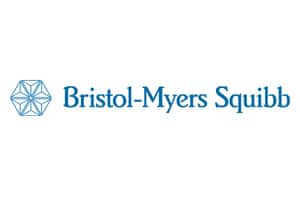
Bristol-Myers Squibb has announced positive results from its pivotal phase 3 CheckMate-9LA, making a case for its cancer drug combo in front-line lung cancer.
The trial evaluated PD-1 inhibitor Opdivo (nivolumab) with CTLA4 blocker Yervoy (ipilimumab), given concomitantly with two cycles of chemotherapy, on its safety and efficacy in first-line advanced non-small cell lung cancer (NSCLC), regardless of PD-L1 expression.
At the pre-specified interim analysis, the combination met its primary endpoint of superior overall survival (OS). This was compared to treatment with chemotherapy alone for up to four cycles followed by optional maintenance therapy.
The safety profile of the Opdivo/Yervoy combination treatment in this study reflected the known safety profiles of the immunotherapy and chemotherapy components in NSCLC. BMS said it will present the full evaluation of the data at an upcoming congress, and will share them with regulatory authorities.
 “We are excited by the CheckMate -9LA results, which demonstrate the potential of Opdivo plus low-dose Yervoy to provide a survival benefit to patients with non-small cell lung cancer in the first-line setting when administered concomitantly with a limited course of chemotherapy,” said Fouad Namouni (pictured left), head of oncology development for BMS.
“We are excited by the CheckMate -9LA results, which demonstrate the potential of Opdivo plus low-dose Yervoy to provide a survival benefit to patients with non-small cell lung cancer in the first-line setting when administered concomitantly with a limited course of chemotherapy,” said Fouad Namouni (pictured left), head of oncology development for BMS.
“These results build on the benefit the combination of Opdivo plus Yervoy has previously shown in first-line melanoma, renal cell carcinoma and most recently lung cancer, and may provide a new therapeutic option for patients,” he added.
BMS has fallen behind market-leader Keytruda (pembrolizumab) from Merck & Co in lung cancer, following its initial trial of Opdivo in NSCLC in 2016.
The results from that trial, which solely investigated Opdivo, demonstrated that the PD-1 inhibitor actually performed worse than chemotherapy, extending progression-free survival (PFS) by 4.2 months compared to 5.9 months in the comparator arm.
At the same time, Keytruda showed it could outperform chemotherapy in NSCLC patients with 50% or greater PD-L1 expression levels – it demonstrated a median PFS of 10.3 months, compared to six months for chemotherapy.
Merck’s rival PD-1 inhibitor has since gone on to dominate in lung cancer, which has helped it to become a blockbuster and the clear leader of the class.
The overall survival results strengthen BMS’ case for the combo in NSCLC, and it is now hoping to convince oncologists that a double cancer immunotherapy approach could be more beneficial than Keytruda plus chemo.
If it gains approval, BMS may have a hard time convincing clinicians to make the switch to the combo, as the Keytruda regimen is already widely prescribed for newly-diagnosed NSCLC patients.




